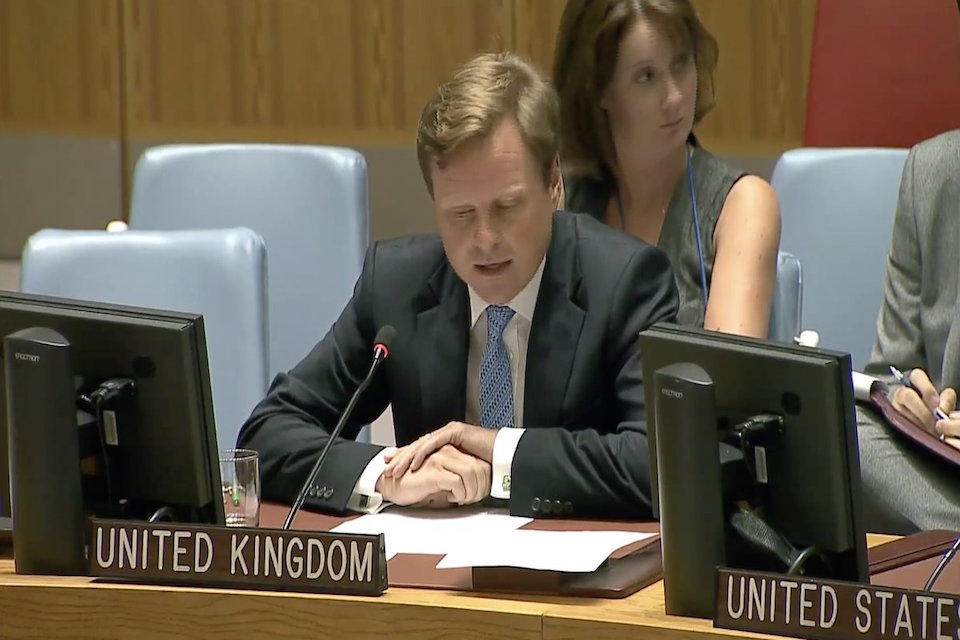"We all recognise the important work that UNMIK has done over many years for the benefit of Kosovo. But it’s time for the Mission to shrink, not grow"
Statement by Stephen Hickey, Political Counsellor at the UK Mission to the United Nations at the Security Council briefing on Kosovo.

Thank you Mr President and thank you Special Representative Tanin for your briefing. I also want to welcome Ambassador Citaku and Foreign Minister Dacic back to the Council.
Mr President, today, like others, I’ll be adhering to the guidance in the Council note 507, which encourages Council members and non-Council members to deliver their statements in five minutes or less.
Mr President, it has been three months since the Council last met to discuss the situation in Kosovo. As the Secretary-General’s report makes clear, it has been a comparatively quiet period in Kosovo.
In June, we saw the successful holding of free and fair elections in Kosovo. While the European Union’s Election Observers noted some voter intimidation and violence in Kosovan Serb parts of the country, we’re pleased that the vast majority of Kosovans were able to carry out their democratic duty peacefully.
We now look to all parties in Kosovo to take the next vital steps and form a government swiftly. The people have spoken; they now expect a government to get on with the business of governing, getting institutions up and running, and getting the country back on the path to European integration.
Crucially, Mr President, this means getting back to implementing the EU-facilitated dialogue. Progress in the dialogue is absolutely vital for both Kosovo and Serbia. It is the only path to normalisation of relations between these two independent countries. The lines on the map are set; they are fixed. They will not be changed. We shouldn’t be distracted by the quarterly angry and overly lengthy exchanges between Serbia and Kosovo in this Chamber. All that matters are the constructive exchanges in Brussels, like those between Presidents Vucic and Thaci only last month.
Progress on dialogue commitments will also be vital if Kosovo is to continue to improve its standing with international organisations. We will support Kosovo in its efforts to do so. While we welcome UNMIK’s facilitating role between the Kosovo authorities and Interpol, we look forward to Kosovo’s own independent membership of Interpol, so that Pristina can respond directly to requests from partners and so that we can together tackle the challenges posed by international crime.
Mr President, the other notable development since we last met was the agreement of the UN’s peacekeeping budget. It seems extraordinary that at a time when $600 million were found in savings from the peacekeeping budget that UNMIK’s budget should find itself increasing, not decreasing.
What message does that send to the world about the priorities of this Council? What message does it send that Kosovo got additional money for solar panels at a time when this Council was able to find savings in our missions to Darfur, to South Sudan and to so many other places?
This increase in funding is particularly hard to fathom given how peaceful and stable Kosovo has become. As the Secretary-General’s report makes clear, there have been comparatively few challenges to security in Kosovo in the past few months. This is something the recent report of KFOR also makes clear, noting that the trend in Kosovo is incrementally positive.
Mr President, we all recognise the important work that UNMIK has done over many years for the benefit of Kosovo. But it’s time for the Mission to shrink, not grow. As such, we’re disappointed that the budget of UNMIK has increased this year, particularly after numerous calls in the past three sessions for a downscaling of the Mission.
Let me close by echoing the comments made by the representative of Japan and by reiterating the UK’s long standing position that it is past time for this Council to meet less frequently on this issue. The number of issues on our agenda only continues to grow; we must focus our time as a Council and attention on genuine threats to international peace and security. All of us in this room should be thankful that the situation in Kosovo no longer falls into this category.
Thank you.